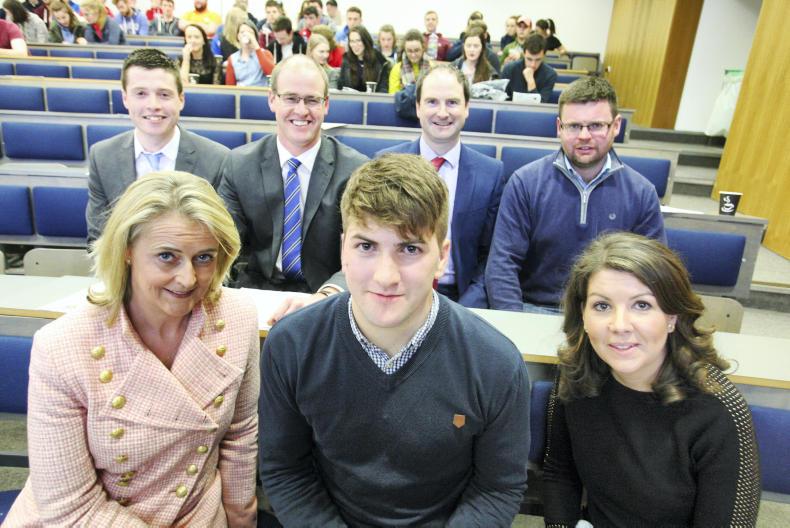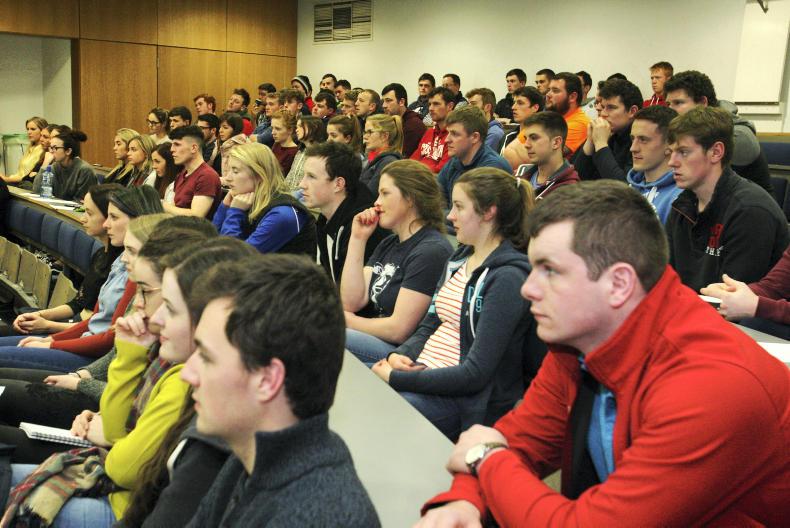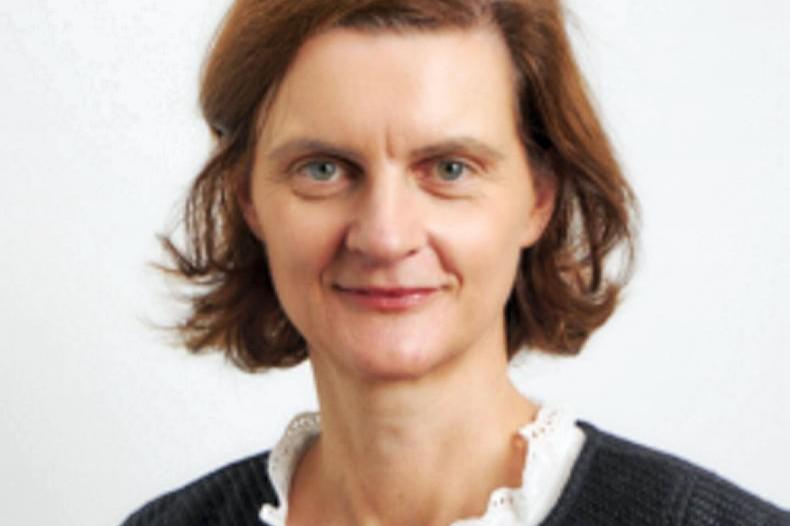Hindsight is a powerful thing. While we learn the most from our own mistakes and experiences, it would be foolish to overlook the wisdom of those who have trodden the path before us.
At a recent Agricultural Science Association (ASA) careers forum, professionals from the agri-food and business sector stood up and gave a wealth of career advice to fourth-year agricultural science students at University College Dublin (UCD).
For anyone at any stage in their career, the hour-long careers forum would have been enlightening, but for those soon to enter the working world of agriculture, it was invaluable.
The speaker’s portfolios were impressive: Stan Lalor, head of speciality business at Grassland Agro; Jane Kavanagh, head of research operations at Teagasc; David Owens, former sector manager for dairy ingredients at Bord Bia; Elaine Farrell, Brexit, Oireachtas and retail executive at the IFA; and James Taylor, account manager at the Irish Farmers Journal’s Traction marketing agency. All were past UCD ag students and gave various tips and tricks, dos and don’ts, on how to achieve career success. However, there was only one certainty in the room: those getting the advice will soon be the ones giving it.
Change
The strongest message sent to the soon-to-be graduates was to embrace change. Stan Lalor warned against the mentality of settling into a job for life. Before getting his current job as head of speciality business at Grassland Agro, Stan worked in Teagasc for 10 years in different roles. He promoted change as a positive career step and said people should not be too fixed in their plans.
“A job for life mightn’t be all it’s cracked up to be. Take a chance and try something different. A particular job shouldn’t be your target – the life it can give you should be. Get it done and get home.”
These sentiments were echoed by David Owens, who left a job with Bord Bia as sector manager for dairy ingredients earlier this year to go home and work his family’s dairy farm. He promoted the idea of not staying in a certain job because you feel pressured to do so and said that long-term pensionable jobs may not be for everybody.
“When you make a career decision, go for it. Permanent pensionable job – those words are desperate. Don’t dismiss the potential of farming. Nobody here at this top table would have a job without farming.”
In his talk, the Cavan man highlighted that graduates going out into the working world should have self-belief and always back themselves and their decisions.
David said when he graduated from UCD in 2003 he was not ready to go home to farm and recommended that anyone considering farming should get experience working off-farm before committing to full-time farming.
Everyday encounters
The concept of every day being an interview was echoed by several speakers: a formal interview process is not the only way to land a job and everyday encounters can be hugely important. In always putting your best foot forward, explained Stan, you never know when you will prick someone’s attention with regard to a possible job: “The job I have today, I got because nine months beforehand I had given a good presentation.”
Job satisfaction
Jane Kavanagh outlined the importance of people following a career they are interested in and said job satisfaction is key to career success.
“It’s a great time to be in ag and to do something you are interested in. Demonstrate initiative – even if you fail you will have learned something.”
All the speakers on the night promoted the importance of further education and lifelong learning, but some of the professionals warned against doing master’s degrees and PhDs that do not serve a specific purpose. It was suggested that a master’s degree or PhD should be chosen to help you achieve a specific career goal.
“You are never finished learning,” proclaimed Stan. “Never ever. The day you finish learning is the day you are dead.” CL










SHARING OPTIONS